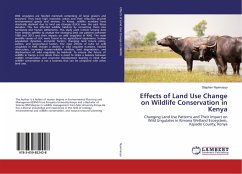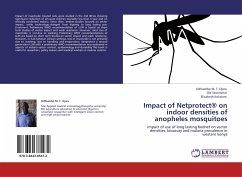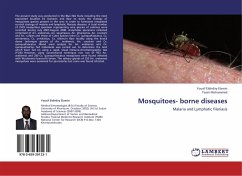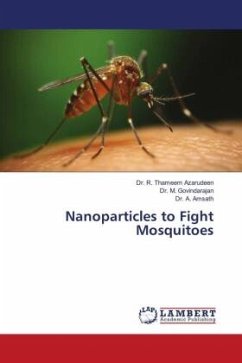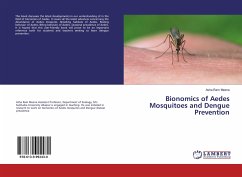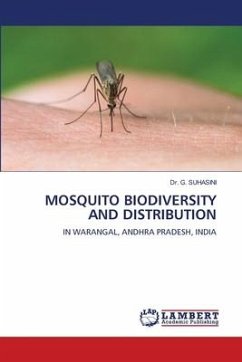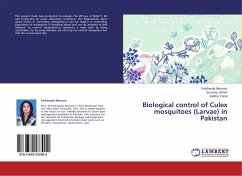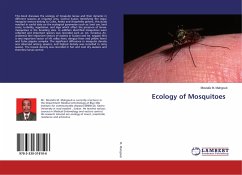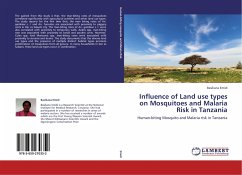
Influence of Land use types on Mosquitoes and Malaria Risk in Tanzania
Human-biting Mosquito and Malaria risk in Tanzania
Versandkostenfrei!
Versandfertig in 6-10 Tagen
39,99 €
inkl. MwSt.

PAYBACK Punkte
20 °P sammeln!
The gained from this study is that, the man-biting rates of mosquitoes correlated significantly with agricultural activities and other land use types. The study reports for the first time that; the man biting rates of An. gambiae s. l. and An. funestus are associated with proximity to piggery units in Dar es Salaam city. The man-biting rates of An. gambiae s. l. were also correlated with proximity to temporary wells. Aedes spp. man-biting rate was associated with proximity to bovid and poultry units. However, Culex spp. And Mansonia spp. man-biting rates were associated with proximity to strea...
The gained from this study is that, the man-biting rates of mosquitoes correlated significantly with agricultural activities and other land use types. The study reports for the first time that; the man biting rates of An. gambiae s. l. and An. funestus are associated with proximity to piggery units in Dar es Salaam city. The man-biting rates of An. gambiae s. l. were also correlated with proximity to temporary wells. Aedes spp. man-biting rate was associated with proximity to bovid and poultry units. However, Culex spp. And Mansonia spp. man-biting rates were associated with proximity to streams and drains. The study documents that the diverse land use types and the presence of multiple distinct habitat types promote proliferation of mosquitoes from all genera. In many households in Dar es Salaam, these land use types occur in combination.



